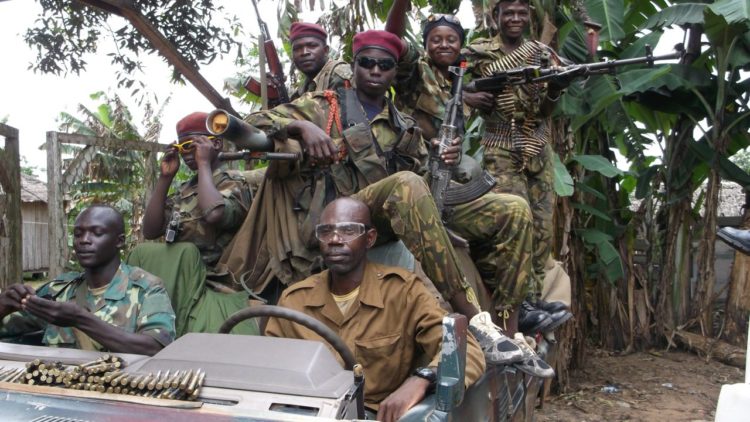Government officials from the Central African Republic (C.A.R.) have accused former President François Bozizé of attempting a coup. The three main armed rebel groups in the country have formed a coalition against the government and are seeking to elect former President François Bozizé to power. The presidential elections are scheduled for December 27.
Bozizé had come to power with his Kwa Na Kwa party after a coup in 2003. But he was ousted 10 years later by a Muslim minority rebel coalition named Seleka, which accused him of breaking peace agreements.
The rebel groups’ coalition is named the Coalition of Patriots for Change (CPC) and it operates under a unified command. They said they decided to form CPC out of fear of massive election fraud from the incumbent regime of President Faustin-Archange Touadéra, who is currently seeking re-election. The coalition has invited “all other armed groups to join.”
This move by the CPC is expected to inflame the already heightened tensions in the country.
The CPC also instructed all its members to “scrupulously respect the integrity of the civilian population” and to allow free reign to vehicles belonging to humanitarian groups and the UN.
Since Bozizé’s ouster, C.A.R. has descended into violence between the Muslim Seleka and the Christian self-defense forces known as the “anti-Balaka.” About two-thirds of the country are controlled by armed militias, often fighting over precious national resources.
As violence reigned following Bozizé’s presidency, the former colonial ruler of C.A.R., France, intervened militarily and ensured elections which resulted in Touadéra coming to power in 2016.
Bozizé returned to C.A.R. about a year ago after living in exile for six years in Benin, Cameroon, and the Democratic Republic of Congo. He still has a large loyal base within the military and the Gbaya, the largest ethnic group in the country.
Bozizé’s presidential candidacy was rejected by the country’s highest court after he had been indicted on an international arrest warrant filed by the C.A.R. The charges against him included murder, arbitrary arrest, and torture, as well as “crimes against humanity and incitement of genocide.”
Armed rebel groups loyal to Bozizé have seized several towns close to Bangui, the country’s capital. They’ve been fighting with government troops and looting property. The UN has been deploying troops to prevent a blockade of the capital and to ensure free elections.
Stéphane Dujarric, a spokesman for UN Secretary-General Antonio Guterres, urged all sides to cease hostilities.
Already have an account? Sign In
Two ways to continue to read this article.
Subscribe
$1.99
every 4 weeks
- Unlimited access to all articles
- Support independent journalism
- Ad-free reading experience
Subscribe Now
Recurring Monthly. Cancel Anytime.
“[Secretary-General Guterres] condemns the escalating violence and calls on all actors to urgently cease hostile actions and work towards ensuring conditions conducive to the holding of credible, inclusive, and peaceful elections on 27 December,” Dujarric added.
Bozizé and his forces are currently in the town of Bossembele, about 90 miles from the capital. They have publicly expressed their intentions to march to the capital. In response, the government called their actions a coup.
C.A.R. government spokesman, Ange-Maxime Kaagui, said, “This is clearly an attempted coup d’état that the government denounces during this electoral period.”
However, the troops are marching on the capital because Touadéra reneged on a promise signed in 2019 to give them leadership positions in government and funds to persuade them to disarm.
Earlier this week, Facebook shut down several disinformation campaigns that had been set up by rival factions trying to influence the narrative in the C.A.R. One campaign originated from a group tied to the French military and the other to Russia and Russian oligarch Yevgeniy Prigozhin, who owns the mercenary Wagner Group.
Moscow has been fostering close ties with the C.A.R. Its military and the Wagner Group have been training the country’s forces.
C.A.R.’s economy is poor but the country is rich in natural resources such as uranium and diamonds.










COMMENTS